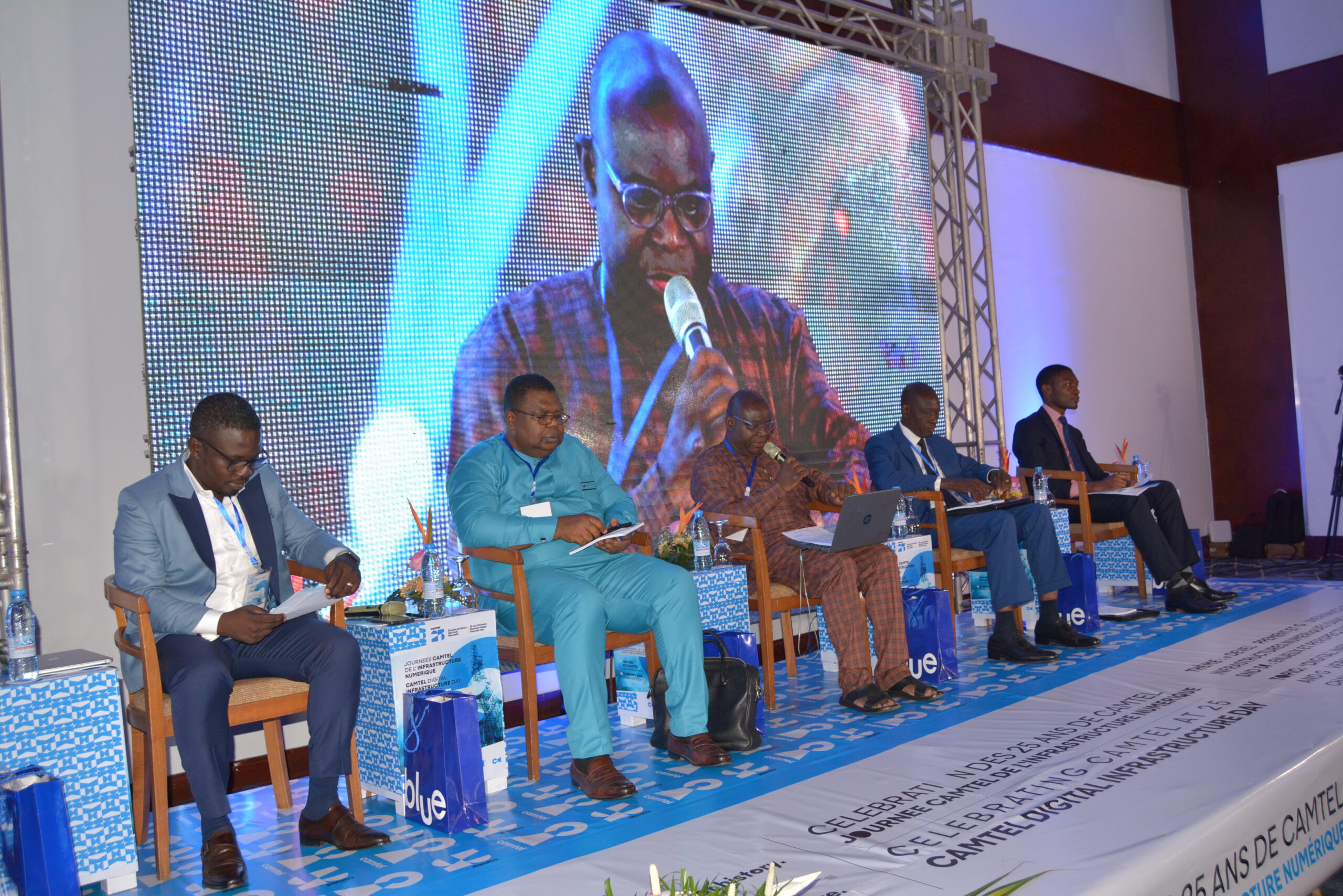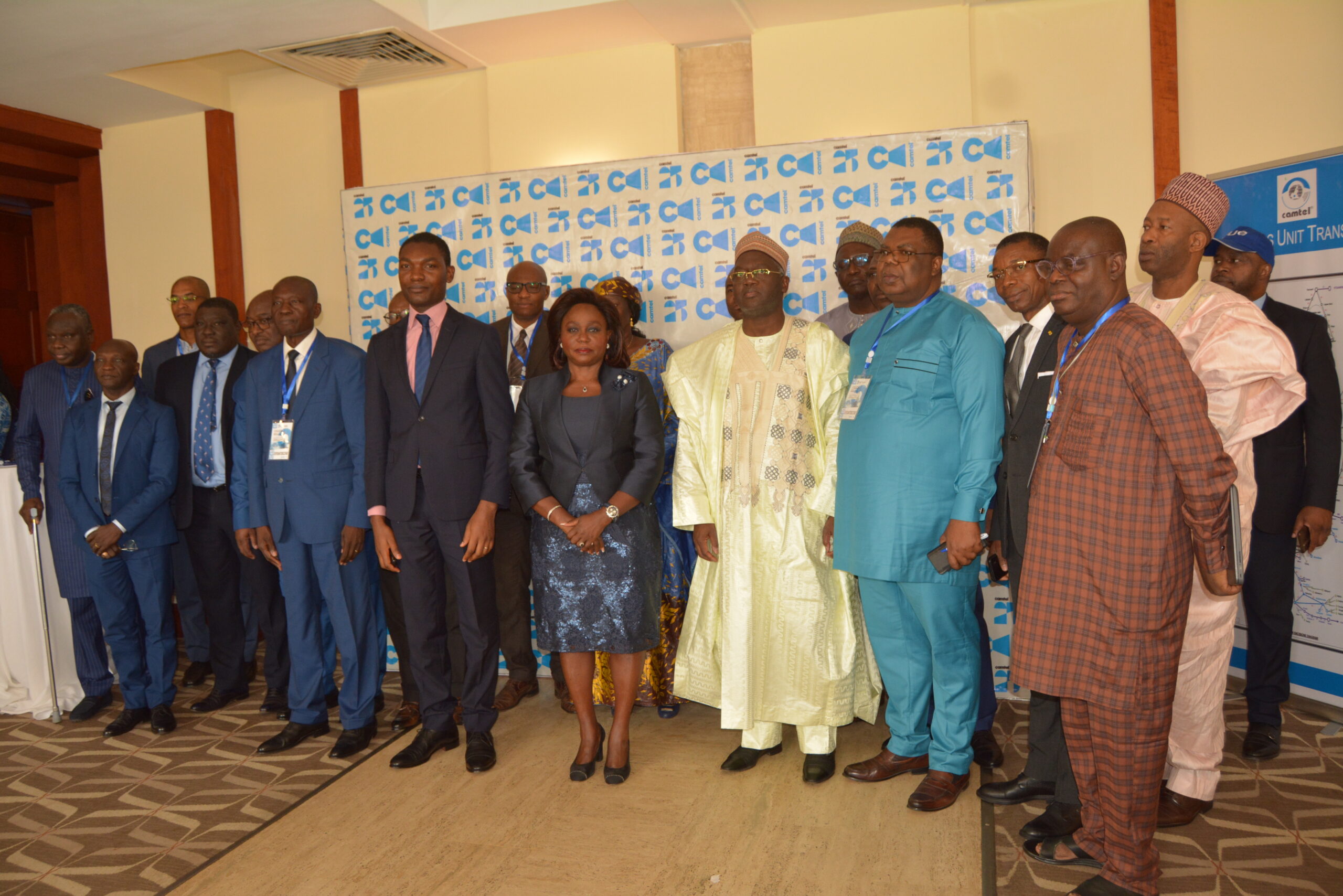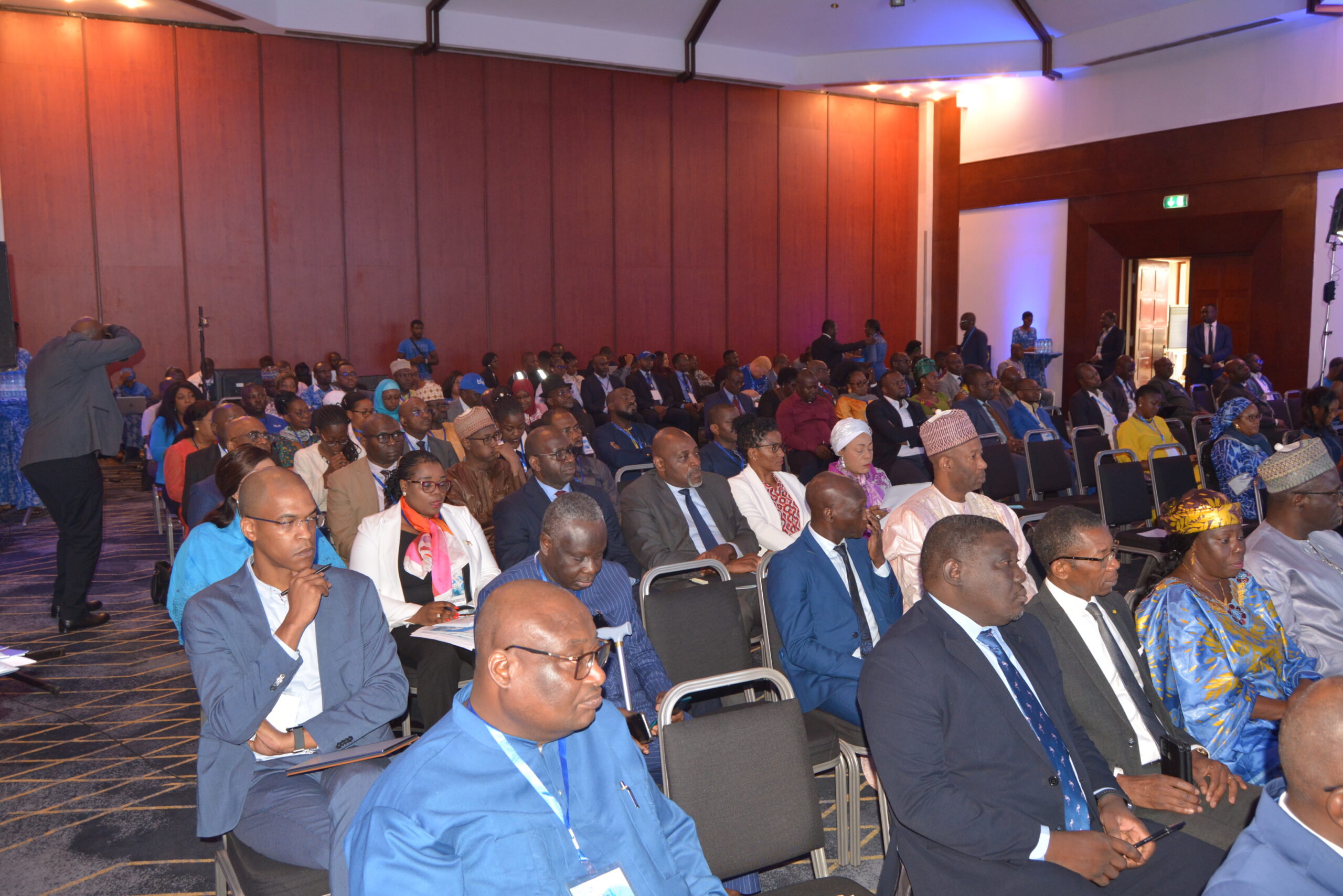In line with CAMTEL’s 25th Anniversary Celebration and activities,- one of which is Digital ‘Infrastructure Days’, the General Manager of CAMTEL, Judith Yah Sunday epse Achidi has underscored the contribution and important role the telecommunications sector is playing and has to keep doing, to contribute to Cameroon’s growth and economic development.
The GM told the media that the government has invested a lot in CAMTEL, and thus it is important that it be preserved and developed further for it to be able to serve the entire nation. “Today we all know that without telecommunication, no business can function, so it is critical for us to call those involved in this activity to come round the table so that we can see how to preserve this national infrastructure”, she said.
Speaking on January 16 at the CAMTEL Digital Day at Hilton Hotel in Yaoundé, the CAMTEL GM who was addressing all stakeholders, including those from ministries and diplomatic missions, as well as international organisations said the celebration of CAMTEL’s 25th anniversary has offered “the happy opportunity since October 2023, to organise workshops for in-depth reflection on the opportunities offered by the telecommunications sector to improve the growth and development of Cameroon’s economic environment”.

Panellists at CAMTEL’s event in Yaoundé
She noted that the celebration allows “us to take stock, a retrospective on the different founding levers of the vision and objectives of CAMTEL, and will allow us to review and comply with the policy driven by the Head of State H.E Paul BIYA, which is that of safeguarding and preserving our infrastructure. This meeting, whose theme is: “Development and Governance of Digital Infrastructures in the Context of NDS (National Development Strategy) 30: Challenges And Prospects” also follows the CAMTEL digital and decentralisation days, held respectively in October and December 2023”.
The GM said the role of telecommunications as a driver of industrialisation in Cameroon is stipulated in the National Development Strategy (SND30). She also noted that the level of use of information and communication technologies (ICT) by local populations and businesses remains very limited, as does the popularisation, diffusion, adoption and appropriation of ICT by public administrations, which is still insufficient.
Quoting experts, she noted that the digital economy contains three pillars, one of which is the development of broadband electronic communications infrastructure and the IT and electronics sectors. The second and third relate respectively to activities borne from the development of ICT and the transformation of existing sectors of activity, through the integration of the use of ICT.
She further told the stakeholders that in the field of the digital economy, SND30 focused on the development of electronic communications infrastructures. In this light, she said Cameroon plans to reconfigure the national digital ecosystem, in particular through the restructuring of the sector by creating a digital infrastructure heritage company; to build the substantial digital infrastructure and generally secure the networks.

Stakeholders and CAMTEL GM in a family photo
On behalf of CAMTEL, she thanked the government for considering the upcoming creation of digital parks and technopoles to develop the production of digital content; to increase and diversify digital uses and services and very importantly too, the drive to develop the manufacturing and assembly of digital parts and devices.
“The advent of a digital infrastructure heritage company will aim to facilitate access to ICT for as many people as possible by ensuring an efficient and secure digital space with an average access index greater than 0.4. More specifically, notes the SND30, it will be a question of developing a latest generation digital ecosystem through the completion of the work of laying optical fibres in particular the National Broadband Network II project, the National Emergency Telecommunications Network project (RNTU), the Central African Backbone project as well as the continued deployment of the fibre optic hinterland network to enable the connection of users to the infrastructure already built and to protect data transactions” she said
“It is in this vein that CAMTEL’s top management has set up in a context of “customer centricity”, a strategy aimed at controlling the production costs of products and services, and therefore, reducing prices. Widespread use of ICT by citizens across the entire territory by ensuring the country’s optical fibre network. The actions carried out have enabled progress including the construction of 12,000 km of optical fibre. The telecommunications development strategy proposed by CAMTEL is thus based on the connection of households and businesses to the already installed optical fibre, on the continuation of investments with a view to modernising infrastructures, on the extension of geographical coverage in terms of digital infrastructure, on improving the quality of internet service and the offer of new, more attractive products, as well as on the development of the digital economy. Based on these upcoming achievements, CAMTEL logically predicts that the telecommunications sector should experience growth of 6.4% by 2030”, she furthered.

Stakeholder and participants following panel discussion at Digital Infrastructure Days event
She said despite certain difficulties inherent to the telecommunications sector in general, CAMTEL is sparing no effort in meeting the challenge of connectivity in Cameroon and in the Central Africa sub-region. “The 21st century marked by globalization has forced us to surpass ourselves to offer the best of our assets,” she said.
On charting a way forward, she said it is her hope was for the consultation to act as a framework for sharing, exchanging and information on the role of digital infrastructure in the development of the digital economy in Cameroon, for the good of its people.
On his part, Dieutoss Evariste, a telecom expert who was one of the panellists at the discussion table said Cameroon has four submarine cables which are all big capacity lines. He said at that level, Cameroon is fine. He said at the national level, the 12000 kilometres of optic fibre is not yet enough for the country, and as such, it has to be developed further. “connecting users to services, we have a lot to do, as only 18.4 of the territory is covered by the 3D, 4D network”, he said. He also urged for much collaboration between actors in the sector.
By Andrew Nsoseka

16 comments
I have read a few just right stuff here. Certainly worth bookmarking for revisiting. I wonder how so much effort you place to make this type of excellent informative website.
Hello there! This post couldn’t be written any better! Reading this post reminds me of my previous room mate! He always kept chatting about this. I will forward this post to him. Fairly certain he will have a good read. Thank you for sharing!
Wonderful web site. Plenty of useful info here. I’m sending it to several pals ans also sharing in delicious. And obviously, thank you on your effort!
Pretty nice post. I just stumbled upon your weblog and wanted to say that I’ve truly enjoyed surfing around your blog posts. In any case I’ll be subscribing to your feed and I hope you write again soon!
Just wanna say that this is extremely helpful, Thanks for taking your time to write this.
Awsome article and straight to the point. I am not sure if this is in fact the best place to ask but do you people have any thoughts on where to hire some professional writers? Thx 🙂
It is really a great and useful piece of info. I am satisfied that you shared this useful info with us. Please stay us informed like this. Thanks for sharing.
I have read several good stuff here. Definitely worth bookmarking for revisiting. I wonder how much effort you put to create such a fantastic informative web site.
You really make it seem really easy together with your presentation but I to find this topic to be actually something that I think I’d by no means understand. It sort of feels too complex and extremely wide for me. I am looking forward on your subsequent post, I’ll try to get the hold of it!
Undeniably imagine that that you said. Your favorite reason appeared to be on the net the easiest thing to be mindful of. I say to you, I certainly get irked even as other people think about issues that they just don’t recognise about. You managed to hit the nail upon the top and outlined out the entire thing with no need side-effects , people could take a signal. Will probably be again to get more. Thanks
An interesting discussion is worth comment. I think that you should write more on this topic, it might not be a taboo subject but generally people are not enough to speak on such topics. To the next. Cheers
I got what you mean ,bookmarked, very decent internet site.
Exactly what I was looking for, thanks for posting.
Pretty portion of content. I just stumbled upon your web site and in accession capital to claim that I acquire in fact enjoyed account your weblog posts. Any way I will be subscribing for your feeds or even I success you get admission to persistently fast.
An interesting discussion is worth comment. I think that you should write more on this topic, it might not be a taboo subject but generally people are not enough to speak on such topics. To the next. Cheers
I’m extremely impressed along with your writing talents and also with the layout on your blog. Is this a paid theme or did you modify it yourself? Either way stay up the nice quality writing, it’s uncommon to see a great blog like this one these days..